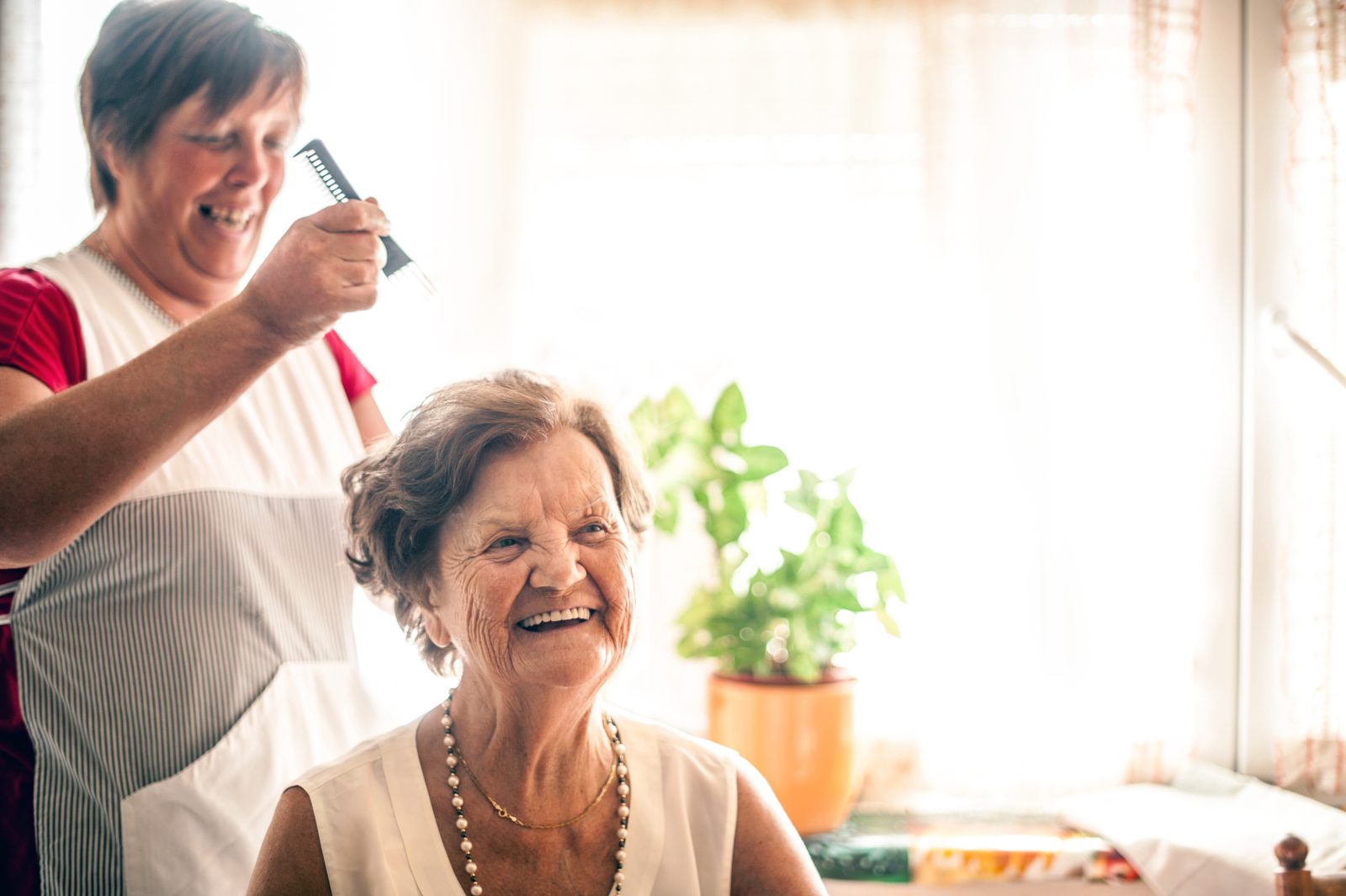A Parkinson’s diagnosis is a life-changing event – it changes daily routines, long-term plans and can often become a job in itself to navigate, but still, it is manageable.
According to the Parkinson’s Foundation, nearly one million Americans are currently living with the diagnosis, and as many of them can attest, it’s entirely possible to live full, happy, healthy lives.
While there are some extra hoops to jump through when dealing with a Parkinson’s diagnosis, family caregivers play an important role, especially when understanding how to care for someone with Parkinson’s disease.
Below are some key takeaways to guide you in supporting a loved one living with Parkinson’s.
Offering Emotional Support
Before you offer hands-on assistance, offer emotional support and use your loved one’s feelings to gauge how much they’d like to be helped.
- Encourage, don’t nag. Instill confidence in your loved one by encouraging them to continue their everyday routine post-diagnosis, but don’t pester them to do tasks that they feel averse to.
- Be observant, but not overbearing. It’s okay to watch and see how independent your loved one can be, but don’t jump straight in and take control of their daily lives.
- Embrace and normalize the diagnosis. Nearly one million other Americans are dealing with similar circumstances. Remind your loved one that they aren’t alone.
Offering Physical Support
The level of physical help that you should offer is going to be an evolving fine line. It’s vital that you don’t let a loved one feel robbed of their independence, but it’s also important that they receive the physical help they need. Start small with:
- Involving the person in your daily tasks. Invite them to come visit, go on car rides, come grocery shopping, or even just watch TV.
- Gently encouraging everyday exercise. Try to find hobbies that can keep them on their feet without making it feel like a doctor’s prescription. Try gardening, daily walks or light workouts like swimming or yoga.
- Managing a healthy diet. Don’t overlook what your loved one is putting into their body. Suggest balanced meals with plenty of calcium to combat fragile bones, fiber to minimize constipation and other necessary nutrients.
As symptoms progress, your assistance will likely evolve to tasks such as:
- Helping with household chores. It may fall on you to keep the house in order with things like cooking, cleaning or staying on top of laundry. If you notice the house in disarray, act without being asked. Eliminate tripping hazards and move furniture to allow for easy access.
- Helping with grooming and dressing. Your loved one will likely need help with things like getting in and out of bed, getting in and out of the shower, and putting on certain pieces of clothing. To minimize how much help you’ll need to offer, consider clothes with Velcro or elastic waistbands, buy shower stools, and keep in mind that stand-in showers are much easier to navigate.
Offering Mental Support
While most mental impairments related to Parkinson’s don’t manifest until later in the diagnosis, the earlier stages still come with plenty of considerations that can leave your loved one feeling burnt out or mentally exhausted. You can help to manage this by:
Reminding them of medications. It’s difficult to memorize a new routine, especially when it involves specific dosages and administration times. Gently remind or ask if they’re on top of their medication. Offer to create a calendar for administration times on their phone or make a note somewhere in the house, but again, don’t be too overbearing.
Attending their doctor’s appointments. Not only will your loved one appreciate you getting them to the doctor, but they’ll also be thankful for the mental load that your presence can alleviate. You can be an extra set of ears to note what the doctor says and you can relay this information if your loved one forgets later on.
Note the progression of their symptoms. If you notice a new symptom for the first time, write it down. This can provide a concrete timeline for you and your loved one’s care team to work with.
Learn more about caring for a loved one living with Parkinson’s disease.
At some point, you may need some additional professional support or respite care from a home care agency like SYNERGY HomeCare.
___________
SYNERGY HomeCare offers no obligation home assessments. Find a location near you or Contact us to talk to a Parkinson’s Care specialist.



